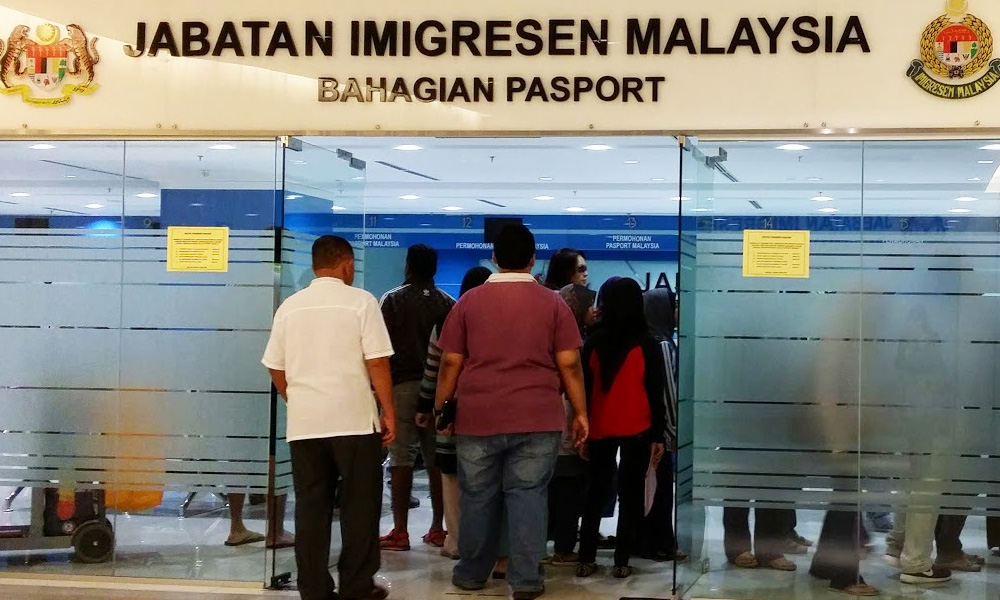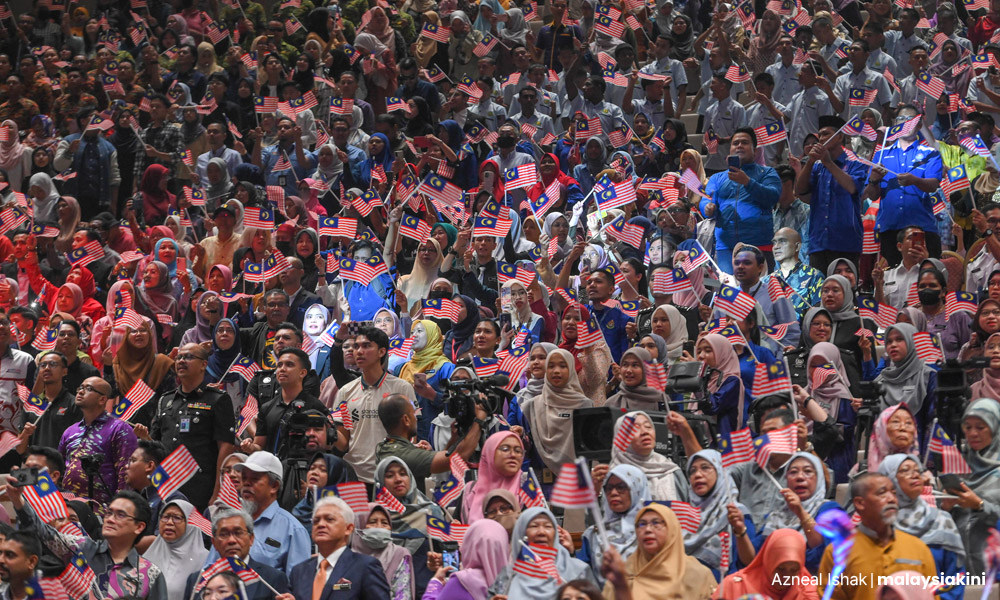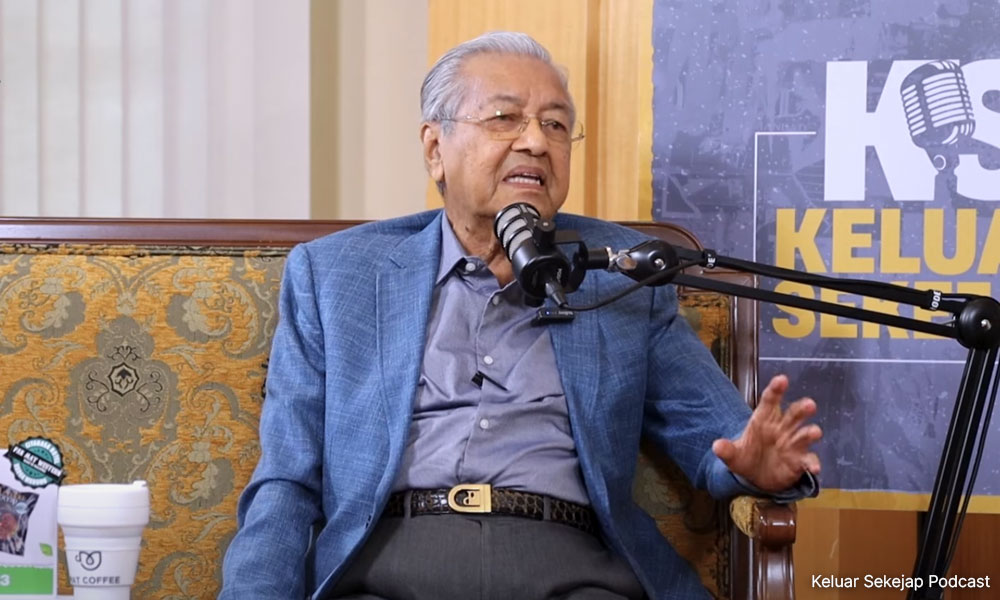“Let us resolve this after decades of independence, that we are here committed to our national language and committed to languages that would be important or critical to enhancing the quality of life and economy of this country.”
- Prime Minister Anwar Ibrahim
The recent incident where a woman was allegedly scolded by an immigration officer for not speaking Bahasa Malaysia and the home minister’s subsequent defence of such conduct, although toxic, could be easily ameliorated if we had the political will to do so.
Keep in mind that everyday engagements between the civil service and normal citizens are fairly mundane and the reason why these incidents crop up is because the unprofessional behaviour of certain officials from the civil service (at any level) is condoned by their political overseers because they fear losing the support of the civil service, which is an influential voting bloc.
If certain low-ranking factotums from the civil service engage in such behaviour, it is because they take their cues from the political class.
Keep in mind everyday interactions between the ordinary rakyat are relatively civil and convivial.

While on social media, you get agitators questioning everything from the patriotism and fluency of the national language of the non-Malays, this is all part of the greater political narrative of the political class which uses language and any other issues to demonise the non-Malays.
Take the use of Bahasa Malaysia for instance. All Malaysians communicate in this language every single day.
We communicate in Bahasa Malaysia, not due to patriotic impulse but rather because this is the language that cuts through class and race.
Indeed, non-Malays use the language among themselves more often than they use English, especially when interacting with people from different backgrounds and educational levels where mother tongues and English are just not utilitarian.
Indeed, it is the default language among non-Malays for mundane everyday activities and this myth that non-Malays use English as some sort of lingua franca is complete horse manure.
And let us not forget that when it comes to interactions with the bureaucracy, non-Malays of course have to use Bahasa Malaysia.
Moreover, like the Malays with their regional patois, this pidgin Malay is not a perfect articulation of the language but, so what?

Even native speakers do not have a perfect mastery of the language although we will often get racial and religious supremacists who mock those who supposedly have a poor command of the language.
This is strange because the upper echelons of civil service are dominated by people who determinedly expose their offspring to English-medium educational establishments and live lives far removed from the hoi polloi whom they defend race, religion and language for.
It is normally politicians and their proxies who constantly harp that non-Malays are not proficient in the language. Political operatives chide reporters for asking questions in English.
Politicians like to demonstrate their cultural bona fides and make statements that the bureaucracy should not entertain letters unless they are written in Bahasa Malaysia.
Politicians have always used language to divide especially along class lines, because it is easier to maintain hegemony when one side thinks that the other does not use the language of the state.
Take the use of English for instance. Prime Minister Anwar Ibrahim has now decided that English is important if we want to progress economically as a country.
Really? This has been going on for decades. The reality is that it benefits the political class if the Malays are not proficient in English because it makes them more dependent on the state.
Class divide
Rich political operatives and the haute bourgeoisie of the Malay class educate their children in English.
Can the same be said of all Malay children, who are either indoctrinated in religious schools to be suspicious of influences from the West or educated in national-type schools where far-right ideologies permeate the syllabus and the teaching staff?
In 2002, when the old maverick decided it was time for Maths and Science to be taught in English (PPSMI) across schools in different stages, the opposition was throwing up roadblocks.
Indeed, so comical were the protestations that Abdul Hadi Awang, who was then the menteri besar of Terengganu, issued a statement expressing "full support" for Dong Jiao Zong (DJZ) and the Kuala Lumpur Selangor Chinese Assembly Hall (KLSCAH) “in their effort to uphold the use of mother tongue in the teaching of Science and Maths in Chinese primary schools".
It gets better. As reported in the press - Sin Chew Jit Poh quoted then-PAS vice-president Hassan Ali as saying that China has become increasingly important in regional affairs and the global economy.
As such, he said, learning Chinese was crucial as it would enhance the competitiveness of Malaysians. The report also quoted another PAS resolution condemning Umno for stirring "racism" by painting the Islamic party as an anti-English "bigot".
Of course, when Perikatan Nasional was in power, nobody wanted to touch the old maverick's brief attempt to revive PPSMI because no one wanted to reform the system or the Malay polity.

Now, of course, it is back to square one, where the Madani government is attempting to course-correct the disastrous mistakes used by the political class when it comes to language.
Of course, any attempts to make the usage of English would be interpreted as a threat to Malay culture and hegemony by the elements in the bureaucracy and PN.
Let us not forget that this unity government is also afraid of its own shadow, so this idea that any form of coherent policy when it comes to modernising this country when it comes to language, creativity and communication with the wider world, will be subsumed beneath policies which would not spook the Malays or at least, policies which would not spook PN.
The irony of course is that in all these cases where non-Malay are scolded for not speaking Bahasa Malaysia properly, the recipients of such abuse more often than not are in a far better position in terms of competitiveness and social mobility because of the language they are proficient in than those who heap scorn upon them.
Who would you rather be? - Mkini
S THAYAPARAN is Commander (Rtd) of the Royal Malaysian Navy. Fīat jūstitia ruat cælum - “Let justice be done though the heavens fall.”
The views expressed here are those of the author/contributor and do not necessarily represent the views of MMKtT.

No comments:
Post a Comment
Note: Only a member of this blog may post a comment.